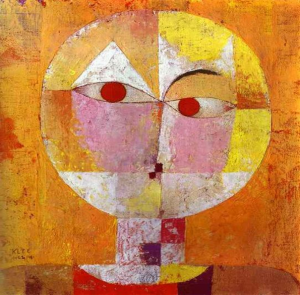Our History

The Newport Center for Psychoanalytic Studies was organized 40 years ago in 1975 by psychologist-psychoanalyst Lawrence Hedges PhD, PsyD, ABPP as a continuing education agency adjunctive to his private practice in Newport Beach, California. Four weekly study groups began meeting that year to discuss difficult cases as well as to read psychoanalytic books and papers together. By 1982 15 such groups were meeting regularly.
The first book was Heinz Kohut’s The Analysis of the Self, soon to be followed by Margaret Mahler’s 1968 monograph on symbiosis and Bowlby’s early work on attachment. By 1980 regular monthly Friday night lectures were also being conducted–mainly by Dr. Hedges, but also with audio and video lectures and discussions by Otto Kernberg, Harold Searles, Jerome Oremland, Heinz Kohut and many others. Outside speakers were also regularly brought in–Rudolph Eckstein, Hedda Bolgar, James Grotstein, Sanford Shapiro, John Moffat, and Christopher Bollas, among others.
INSTITUTE CHARTER
By 1983 it was time to begin a psychoanalytic institute. Consultants on the project were James Grotstein, Hedda Bolgar, Rudolph Ekstein, Rocco Motto and Christopher Bollas. A California non-profit corporation was chartered in 1983 by Lawrence Hedges, Reiss-Davis trained child psychoanalyst, William Erwin, a graduate for the National Psychological Association of Psychoanalysis in New York, and Ray Calabrese, a California Certified Financial Planner. The corporate name was the Newport Center for Psychoanalytic Studies and the branch for formal psychoanalytic training was called the Newport Psychoanalytic Institute. The first NPI class of twelve psychoanalytically oriented therapists began the Freud and Transference reading groups with Dr. Erwin.
STATE CERTIFICATIONS
The early processes of certification were difficult. Several years before, the four medical psychanalytic institutes in California promoted a law allowing for “research psychoanalysts” who were not California licensed mental health practitioners to be trained and certified to practice psychoanalysis. The law also included psychologists, social workers, marriage family and child counselors, and psychiatric nurses. The administration of the “research psychoanalyst law” was managed under the California Board of Medical Quality Assurance. Under that law the general APsaA standards for training and certification were specified and the requirements of a legally sanctioned psychoanalytic Institute were spelled out. When The Newport Psychoanalytic Institute applied for state certification, needless to say, all four medical psychoanalytic institutes vigorously opposed it but in the end were soundly defeated because Newport met the legal requirements for certification. One of those requirements was having been previously approved by the California Department of Education to offer state approved certification for private post-secondary education. At the time Dr. Hedges pursued this certification he also went through the tedious process of applying for NPI to be able to offer a PhD degree in psychoanalysis – an accrediting process that was to come to fruition five years later.
THEORETICAL ORIENTATION
From the beginning, the founding director of the Institute encouraged theoretical and clinical pluralism in approach and that orientation has remained in place to the present. That is, all schools of psychoanalysis are honored as contributing substantially to our growth as professionals.
EARLY TRAINING
During the first five years of institute training a number of medical analysts from Orange, San Diego, and Los Angeles Counties as well as other psychoanalytically trained individuals in the area taught the early classes and conducted supervision and training analyses. By the time the first graduates were trained there were enough individuals participating to reorganize and elect a Board of Trustees and to set up expanded by-laws as well as Curriculum and Training Committees. At this time the founding director, Dr. Hedges, stepped down from his central leadership position, handling the co-directorship over to the institutes first graduates: Drs. John and Judy VanDixhorn and the training committee to Dr. Michael Russell.
INTELLECTUAL FOUNDERS
At the NPI 30th anniversary celebration in 2013 Dr Hedges named the six key fiscal and Intellectual co-founders: Lawrence Hedges, William Erwin, Ray Calabrese, Christopher Bollas, Avedis Panajian, and Michael Russell. During the earliest years Dr. Panajian commuted regularly from Los Angeles to teach Melanie Klein and Wilfred Bion. For seven years Dr. Christopher Bollas commuted from London to do a week’s training on Object Relations, the Independent Tradition, and his own work. Dr. Michael Russell, a philosopher and existential psychoanalyst contributed his philosophical and epistemological knowledge in any number of early courses.
GUEST TRAINERS
During this foundational period regular continuing education programs were offered to the community. Typically an invited guest would spend four days doing lectures and case conferences for faculty and candidates at the institute and also provide a Friday night lecture to the community at large. As already mentioned, Christopher Bollas conducted weekly trainings for seven years. Others who visited NPI during this period were Joyce McDougall, Andre Green, James Grotstein, Rudolph Ekstein, Gerhard Cohen, John Gedo, Jerome Oremland, Evelyn Schwaber, Martha Stark, Karen Maroda, Robert Stolorow, Stuart Schneiderman and others.


